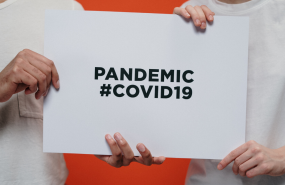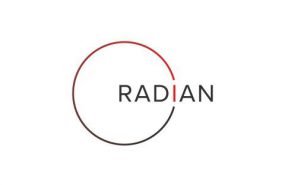The Robert Carr Fund announces $2,5M in funding for civil society networks
- 02.04.2020 10:11
- Post Views: 1,330
The grants are allocated to five global and regional networks and consortia, as part of the Strategic Opportunity Funding. The allocated grants will support innovation and generate creative approaches for a period of eighteen months (July 2020 to December 2021).
The RCF International Steering Committee (ISC) met in Amsterdam last February 18-19 to make funding decisions and allocate US $2,5M designated for the Strategic Opportunity Funding. This exceptional funding opportunity was announced in August 2019 to help former and current RCF grantees in their exploration of novel and creative responses to increasingly complex challenges faced by civil society, inadequately served populations, and by the HIV response itself in the evolving global health architecture.
The call for proposals prioritized initiatives focused on 1) movement leadership, 2) financial health and resilience of ISP programs, and 3) innovation, learning, and partnership. In addition, the Strategic Opportunity Funding aimed particularly at attracting proposals from networks addressing the needs of people living with HIV, transgender people, youth who are ISP, and migrants who are ISP, given these communities were identified as being under-represented in the 2019-2021 RCF funding portfolio.
Eligible proposals went through the RCF’s rigorous review process led by the RCF Program Advisory Panel (PAP), that advises the ISC on funding. The PAP took into account each proposal’s creativity and novel thinking in one or more priority areas, the potential for achieving results and influencing change in line with the intention of the RCF’s Strategic Opportunity Funding, and the centrality of the prioritized communities.
ISC 2019–2021 funding decision
Based on the PAP advice, the ISC approved an investment of $2,5M in five global and regional networks and consortia for 18 months, starting in July 2020 and ending in December 2021. Each grantee will receive $500K in funding to implement their approved projects.
These allocations support critically needed new thinking and new solutions to increasing challenges in the HIV response. As civil society and ISP-led networks are under growing pressure from restrictive policies, blatant attacks against human rights, and more competitive funding, the response should rely on creativity, innovation, and exploration of strategic change.
“Doing the same thing in the same ways with the same people will not be sufficient to end the HIV epidemic or to realize people’s human rights and access to services throughout the world.” (Craig McClure, the ISC chair)
The Strategic Opportunity Funding allocations directly support this imperative. It represents an exceptional strategic investment in networks that have a bold vision of change for ISPs and are best placed to develop and field-test cutting-edge, forward-thinking, innovative solutions to achieve that change, in line with the RCF 2020-24 strategy. The approved allocations support a range of initiatives focused on leadership of youth caught up in the criminal justice system; self-sustainability of ISP-led initiatives; community monitoring of national health budgets to promote change; a ranking mechanism to encourage higher national investments in harm reduction; and a youth-led initiative for an inclusive environment in Christian schools.
This strategic opportunity was made possible by the generous commitments from the Bill & Melinda Gates Foundation and the governments of the Netherlands, Norway, the United Kingdom and the USA.
The full list of the Strategic Opportunity Funding grantees is included below.
Members of the International Steering Committee are:
Craig McClure (Chair), Sujatha Rao (Vice-Chair), Monica Djupvik (represented during May 18-19 by Camilla Holst Salvesen), Cornelius Baker, Sandy Thurman, Juliet Whitley (represented by Sally Chakawhata), Kate Thompson (observer), Laurel Sprague (observer), Anandi Yuvaraj, Paul-Gilbert Colletaz (represented by Neil McCulloch), Tian Johnson (civil society observer).
Members of the Program Advisory Panel are:
Jennifer Ho (co-chair), Khalid Tinasti (co-chair), Tendayi Mharadze (co-chair during the PAP meeting on January 30-31), Meg Davis, Nadine Ferris France, McLean Kabwe, Oswaldo Rada, Liz Tremlett, Brian Ssensalire.
Representatives of the Fund Management Agent and RCF secretariat are:
Mark Vermeulen, Mirjam Krijnen, Koos Boering, Sergey Votyagov, Olga Rychkova, Nathaniel Miller, Anja Dietrich, Gabriel Sevilla, and Samira Helmy.
| List of Funded Proposals | Network type | Lead organization | Grant amount |
| Southern African Network of Prisons (SANOP) | Regional Network | $ 500,000 | |
| Caribbean Vulnerable Communities Coalition (CVC) | Regional Network | $ 500,000 | |
| The Harm Reduction Consortium | Global Consortium of Networks | International Drug Policy Coalition (IDPC) | $ 500,000 |
| Inclusive and Affirming Ministries (IAM) | Regional Network | $ 500,000 | |
| Positive Universe | Global Consortium of Networks | The Global Network of People Living with HIV (GNP+) | $ 500,000 |
| Total $ 2,500,000 |
Related News
Global Fund COVID-19 Flexibilities
Grant flexibilities, announced on 4 March 2020, allow countries with current grants to: 1) use up to 5% of their current grant value if there are savings, and/or 2) reprogram up to 5% of the value of a grant to meet immediate COVID-19 response requirements. Repurposing equipment already purchased through a Global Fund grant is […] Read moreCOVID-related Funding Opportunities for Civil Society Working on HIV, TB, Malaria, Gender and Human Rights
We would like to share with you the information about few COVID-related Funding Opportunities available for Civil Society Working on HIV, TB, Malaria, Gender and Human Rights in EECA. Post Views: 3,243 Read moreGrant applications for RADIAN are now open
The global community now has the tools to meaningfully address new HIV infections; however, HIV is on the rise in Eastern Europe and Central Asia (EECA). Post Views: 1,397 Read moreServices for migrants and refugees from Ukraine – HIV/TB care with a focus on key populations
Due to the increasing flows of refugees from Ukraine because of Russia’s invasion of Ukraine, the EECA Regional Platform created a spreadsheet to fill contacts details of face-to-face and online services for refugees and migrants (with a focus on HIV/TB care and key population groups).
Regional Platform – EECA
This web-resource is a part of new regional communication and coordination project “Regional Civil Society and Community Support, Coordination and Communication Platform - EECA”, implemented by Eurasian Harm Reduction Association (EHRA).
Tags
See also
-
EECA’s Regional Platform monthly Newsletter #21, February 2026 26.02.2026 11:56
-
EECA’s Regional Platform monthly Newsletter #20, January 2026 27.01.2026 12:58
-
Global Fund Eligibility List 2026 27.01.2026 11:19







